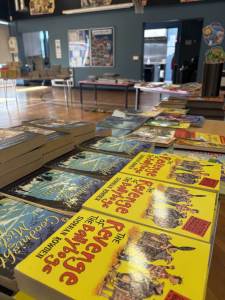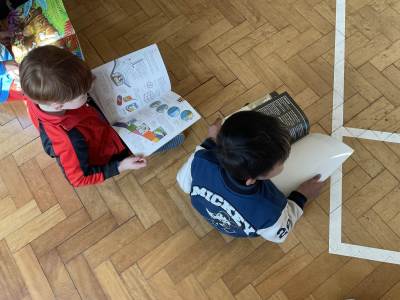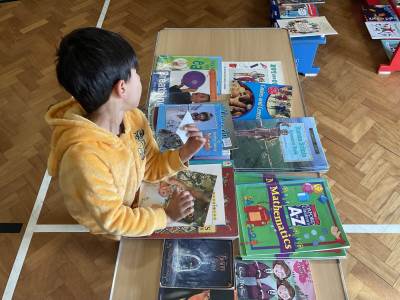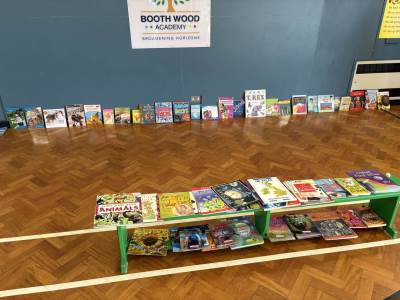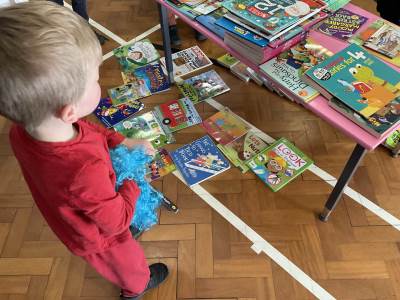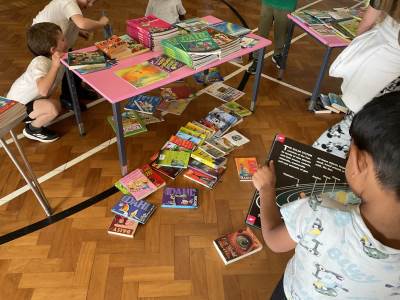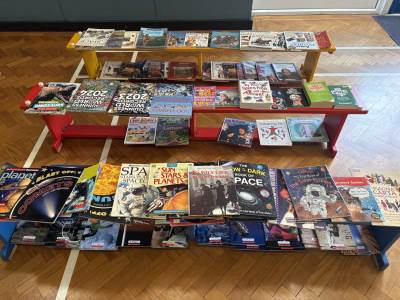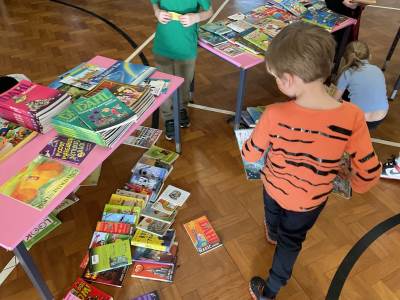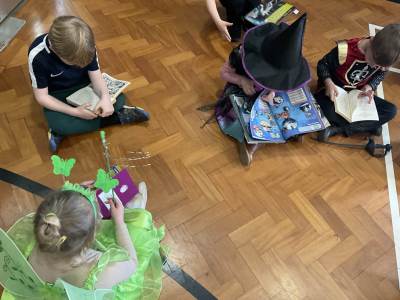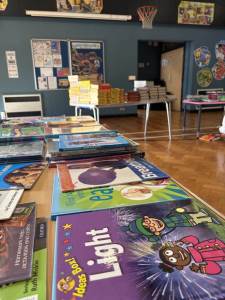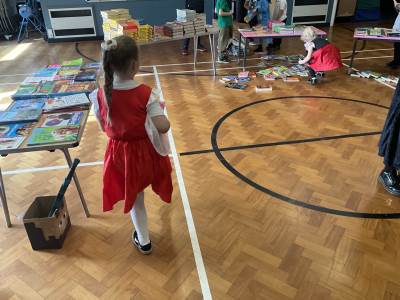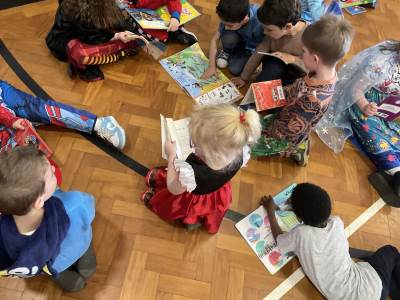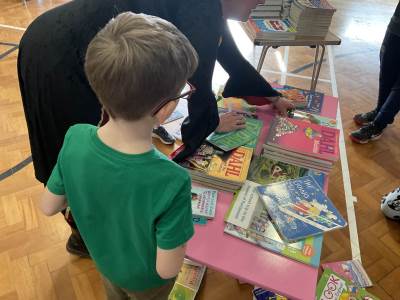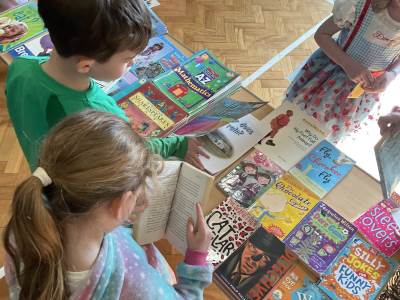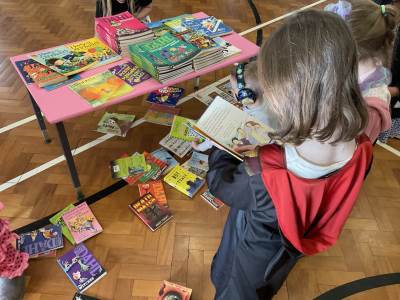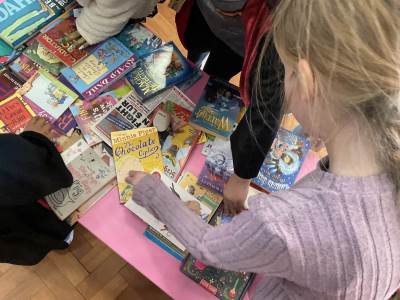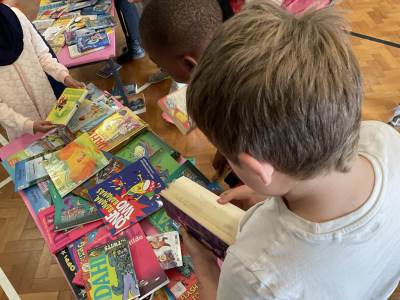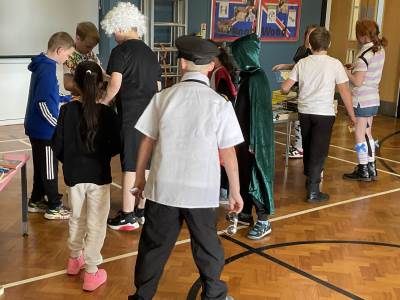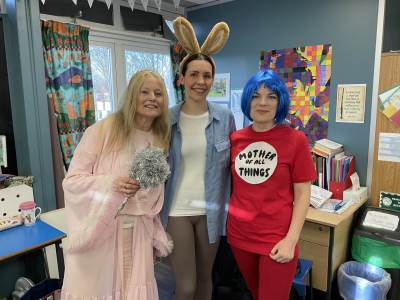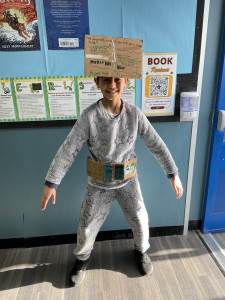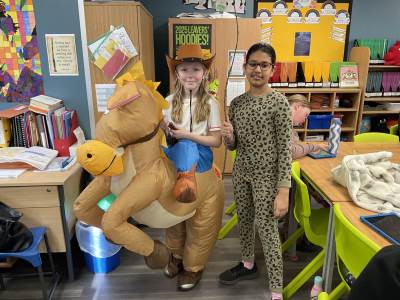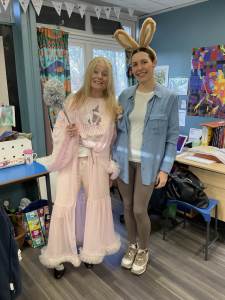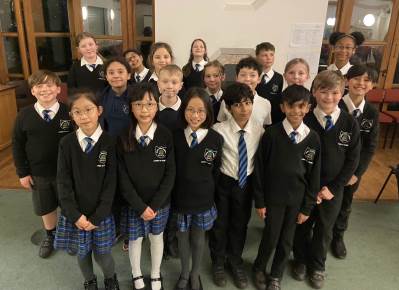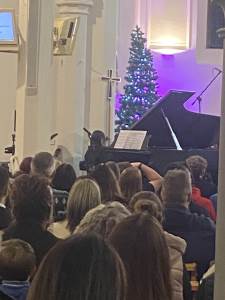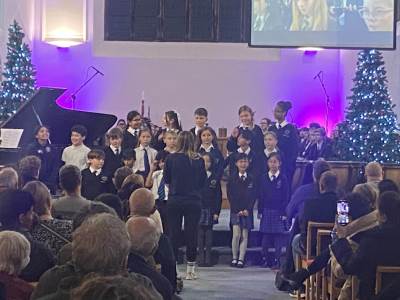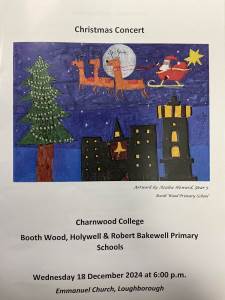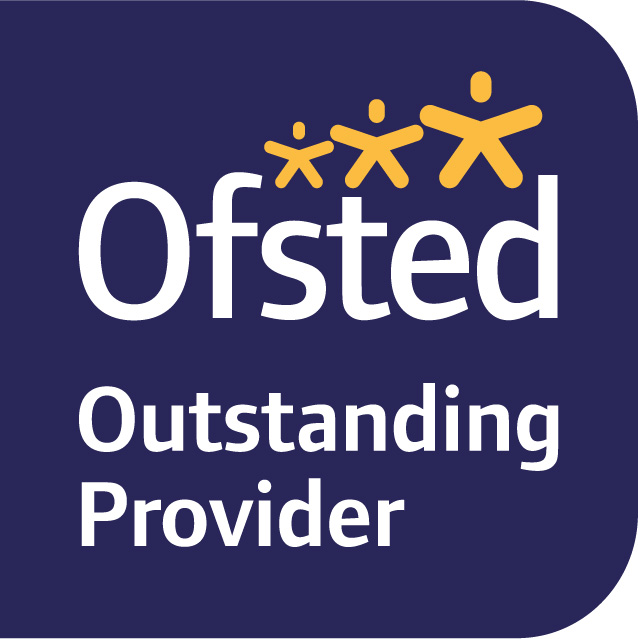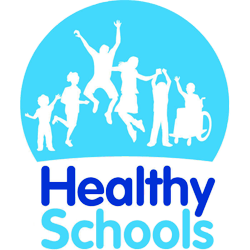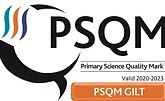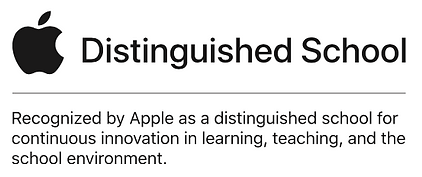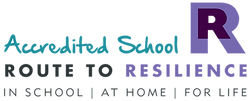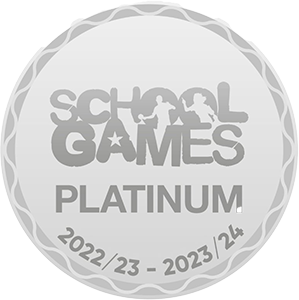Curriculum
Booth Wood Academy curriculum is in a period of transition from its established curriculum to a new exciting world class curriculum based on David Ross Education Trust’s curriculum.
Therefore, there is a blended approach to the curriculum in the academic year 2024-2025 as different curriculum areas are changed from the previous structure and progression maps to the new DRET structure and progression maps.
The plans and curriculum have been carefully reviewed to ensure continuity across the curriculum areas, progression and that children are building on previous knowledge and introduced to new knowledge in a way they can access and achieve great success.
The curriculum information below is based on the original curriculum and will be updated in line with the delivery of the new curriculum across the year.
If you would like to request additional information regarding our curriculum and how this is covered in each year, please contact the office on 01509 267876.
EYFS
Early Years Foundation Stage (EYFS)
The Early Years are the foundation upon which children’s future learning are built. At Booth Wood Academy our aim is that children discover the satisfaction and great enjoyment of being interested and involved in the many learning opportunities available to them. In doing so, they will develop the self-belief and ‘can do’ attitude which will enable them to become successful lifelong learners.
The Reception Year is the final phase of the Early Years Foundation Stage Curriculum (2023). At the heart of the curriculum are four guiding principles:
- Every child is a unique child, who is constantly learning and can be resilient, confident and self-assured
- Children learn to be strong and independent through positive relationships
- Children learn and develop well in enabling environments with teaching and support from adults
- Children develop and learn in different ways and at different ways
-
Booth Wood EYFS III
download_for_offline
download_for_offlineBooth Wood EYFS III
- Reception baseline assessment information for parents download_for_offline
download_for_offlineReception baseline assessment information for parents
English
Our English Ambassadors
"I’ve always had a passion for English and I love writing creatively, explaining things to others and how to present your ideals for people around you.
If you keep English burning in your heart, you can excel in that topic and become a linguistic like me!"
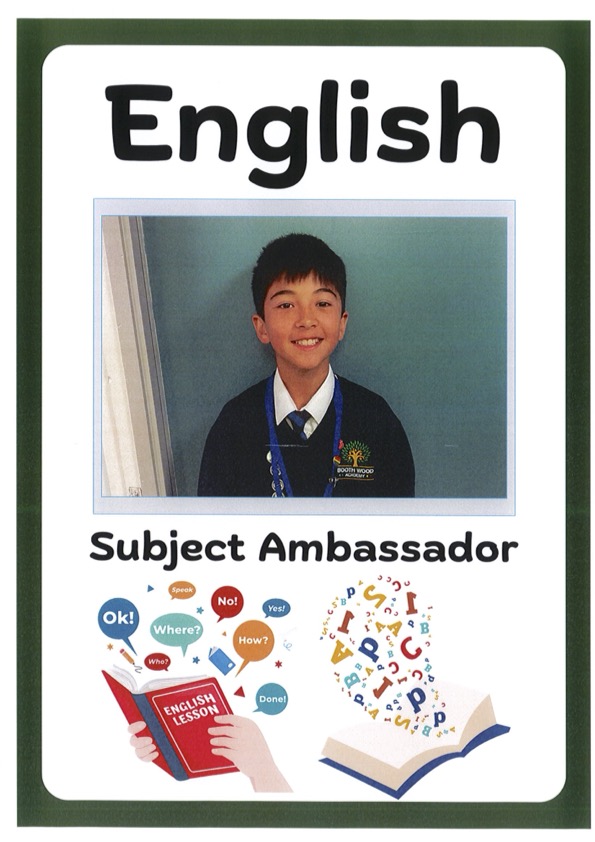
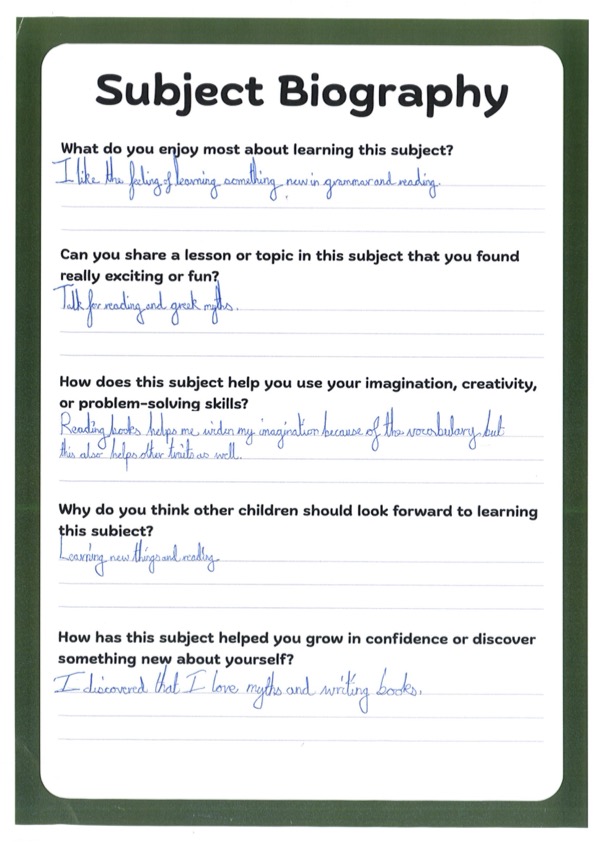
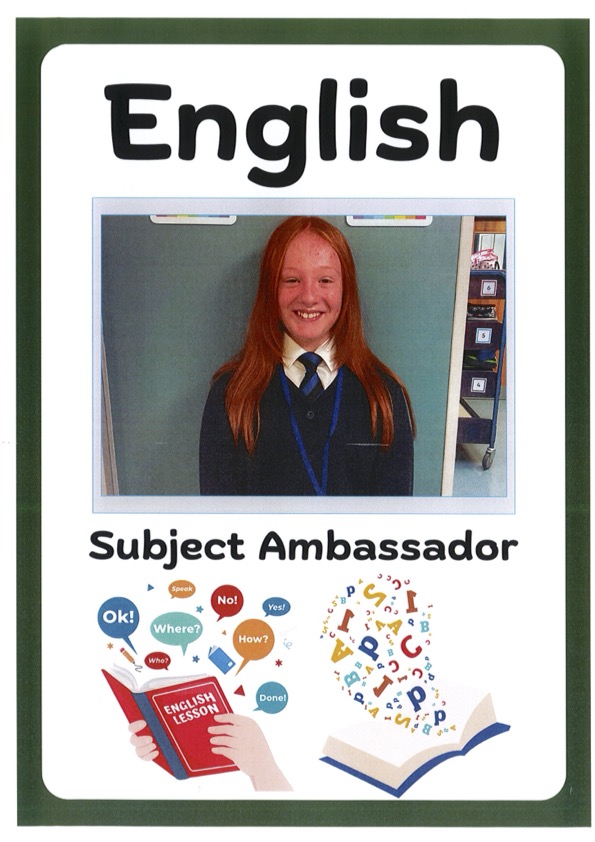
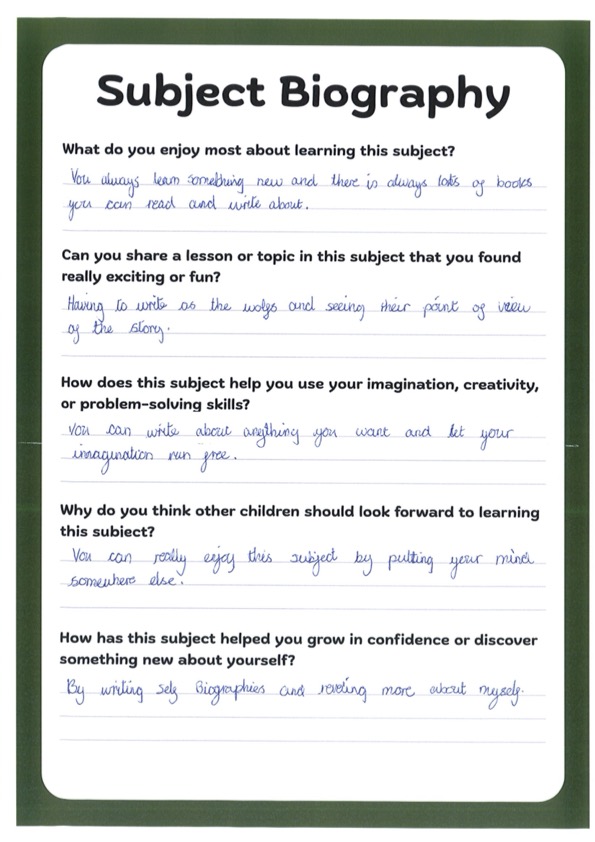
At Booth Wood Academy, we strive to develop children who are fully literate, articulate, and prepared for their secondary education and later life. Through engaging lessons, our intent is to foster a love of literacy and language and an enjoyment of learning. We challenge children of all abilities and ensure they make good progress in all areas of the English National Curriculum. Our whole-school approach to writing is based on Talk for Writing, which enables children to internalise language patterns, develop their vocabulary, and become confident, creative writers. We are also in the process of implementing Talk for Reading, ensuring a consistent, structured approach to comprehension and reading fluency across the school.
Our approach is designed to ensure progress for every child, encouraging them to develop a positive growth mindset, perseverance, and resilience. Through reading in particular, pupils are given a chance to develop culturally, emotionally, intellectually, socially, and spiritually. We celebrate children’s hard work and effort, alongside their successes. They are encouraged to revisit their work, make changes, and develop their ideas to ensure they achieve their best. Built on the belief that language should be explored and enjoyed—not just learned—our whole-school approach to English places reading for pleasure at its core, with grammar skills seamlessly woven throughout.
Reading is a multi-strategy approach to understanding the written word. It is not simply the decoding of black marks on the page but involves the ability to read with understanding a wide range of different texts, including fiction, non-fiction, and real-world texts such as labels, captions, lists, and environmental print. Competence in reading is the key to independent learning, and therefore, the teaching of reading is given a high priority by all staff. Success in reading has a direct effect on progress in all areas of the curriculum and is crucial in developing children’s self-esteem, confidence, and motivation.
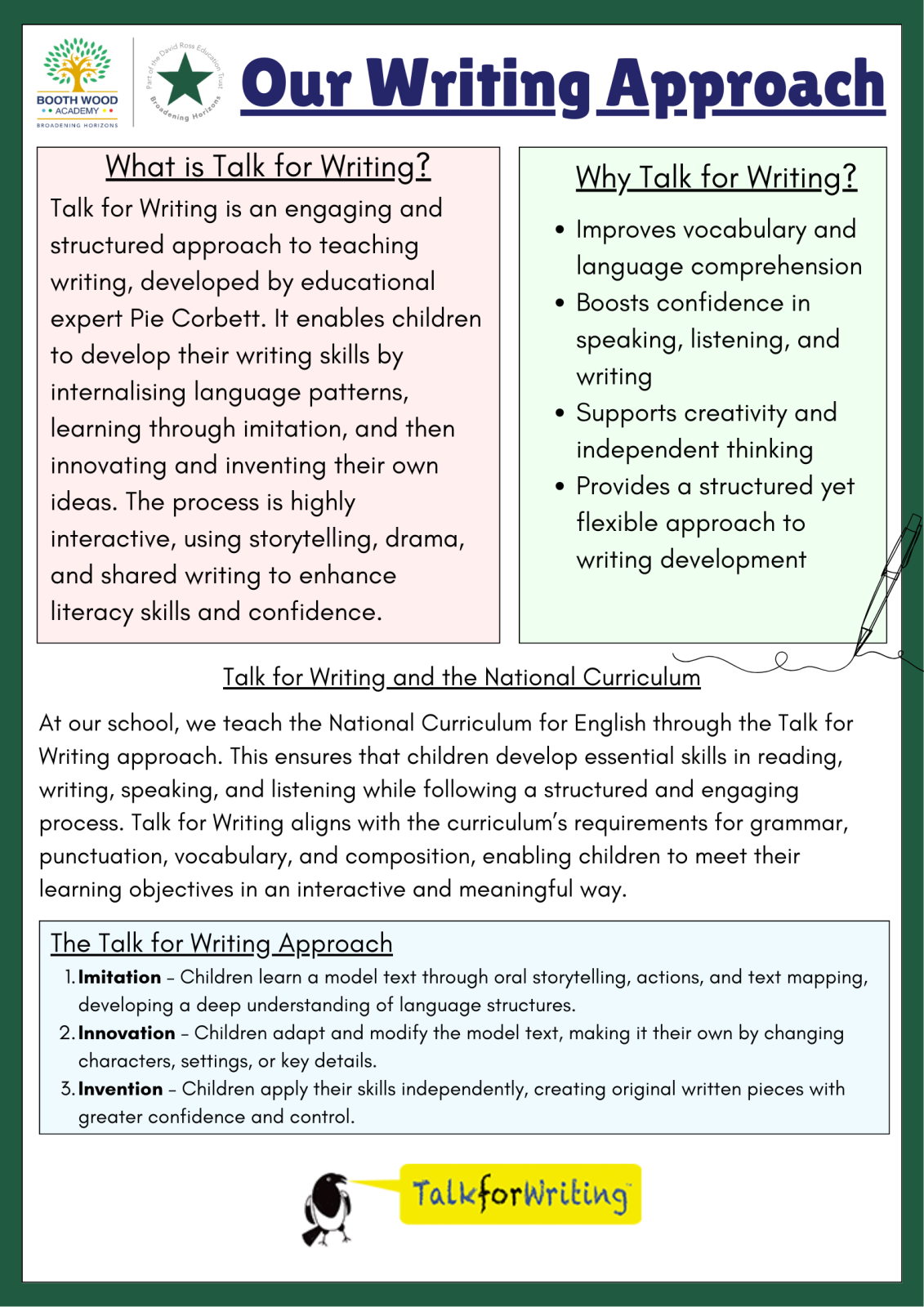
Phonics
In our school, we use the Read, Write Inc. (RWI) Phonics scheme to teach children how to read. Learning to read is the most important thing your child will learn at our school. Everything else depends on it, so we put as much energy as we possibly can into making sure that every single child learns to read as quickly as possible.We want your child to love reading – and to want them to read for themselves. This is why we put our efforts into making sure they develop a love of books as well as simply learning to read. EYFS, Year 1 and 2 are very important years in your child’s reading as they are assessed against the national standards. In Year 1 children sit a Phonics Screening Check.
Please access the resources below should you wish to know more. information below provides you with information about RWI and also useful websites and links to use with your child.
-
Phonics screening check information for parents
download_for_offline
download_for_offlinePhonics screening check information for parents
- Progressional Books Reception download_for_offline
download_for_offlineProgressional Books Reception
- Progressional Books Y1 download_for_offline
download_for_offlineProgressional Books Y1
- Progressional Books Y2 download_for_offline
download_for_offlineProgressional Books Y2
- Progressional Books Y3 download_for_offline
download_for_offlineProgressional Books Y3
- Progressional Books Y4 download_for_offline
download_for_offlineProgressional Books Y4
- Progressional Books Y5 download_for_offline
download_for_offlineProgressional Books Y5
- Progressional Books Y6 download_for_offline
download_for_offlineProgressional Books Y6
- Reading Intent download_for_offline
download_for_offlineReading Intent
- Writing Intent download_for_offline
download_for_offlineWriting Intent
World Book Day ('25)
Maths
Intent
At Booth Wood Academy, we intend for all pupils to experience an inspiring, number-rich and motivational maths environment. We aim for all pupils to have access to a maths curriculum which meets the needs of all learners and equips them with the mathematical skills necessary for them to succeed on whichever path they follow. We want all pupils or develop a positive ‘can do’ attitude to maths and support all children to become mathematicians.
Our youngest children will begin their early mathematical development supported by excellent early mathematical teaching which supports the development of early number sense, giving them the foundational skills needed to confidently reason and solve mathematical problems.
Our intent is for every child to leave our care as able and independent mathematicians, with the confidence and skills required to calculate fluently, reason confidently and solve problems efficiently. They will be thoroughly prepared in all aspects of mathematics and fully equipped for the next step in their educational journey.Implementation
Our maths curriculum at Booth Wood Academy is delivered with the support of the Power Maths scheme. This scheme supports teachers to deliver well-structured and exciting mathematical opportunities that enable our children to learn, revisit and progressively develop their skills in maths at an age-appropriate level.
Teachers and other adults working in EYFS are fully trained in supporting early mathematical development and helping our youngest learners to acquire early number sense. This is achieved through practical and engaging activities, which children can access, alongside adults or independently with peers, to practise their maths skills.
In key stages one and two, maths lessons are planned to follow the small-step mastery approach to acquiring maths skills as set out in the Power Maths scheme. This scheme supports teachers to plan and deliver lessons which teach pupils essential skills, gives them time to develop their fluency and apply their knowledge to practise mathematical reasoning and solve problems. Teachers promote and encourage pupils to work collaboratively, as well as independently, and provide excellent modelling of all mathematical processes and concepts as part of everyday teaching. Same day interventions are utilised during and following every maths lesson, alongside an effective intervention programme to fill gaps in children’s learning following their termly maths assessment.
Teaching and Learning
Our teaching for mastery curriculum is underpinned by the NCETM’s 5 Big Ideas.Opportunities for Mathematical Thinking allow children to make chains of reasoning connected with the other areas of their mathematics. A focus on 'Representation and Structure' ensures concepts are explored using concrete, pictorial and abstract representations, the children actively look for patterns as well as specialise and generalise whilst problem solving. 'Coherence' is achieved through the planning of small, connected steps to link every question and lesson within a topic. Teachers use both procedural and conceptual 'Variation' within their lessons and there remains an emphasis on 'Fluency' with a relentless focus on number and times table facts.
Impact
At Booth Wood Academy, all pupils make excellent progress in maths. This starts with a firm foundation in EYFS, with 68% of pupils reaching a 'Good Level of Development' in maths in 2024.
An overwhelming majority of our older pupils are equipped with the maths skills they need to succeed at secondary school when they leave us. This is reflected in our end of KS2 assessments for 2025, with 100% of pupils meeting expected outcomes in maths and an outstanding 57% working at greater depth!
Through evaluation of work in children’s books at Booth Wood Academy, it is clear to see the high quality of mathematics throughout the school. Children are able to confidently talk about their work in maths lessons and can apply age-appropriate skills and knowledge in their work. They are willing to take risks and learn from their mistakes, showing both perseverance and resilience in mathematical learning.
Monitoring and Evaluation
The subject leader is responsible for monitoring the quality of education in maths. This is achieved through lesson observations, pupil discussions, book looks and CPD. Data is analysed at the end of each academic term and a subject report is written at the end of the academic year. All these things inform the next year’s action planning.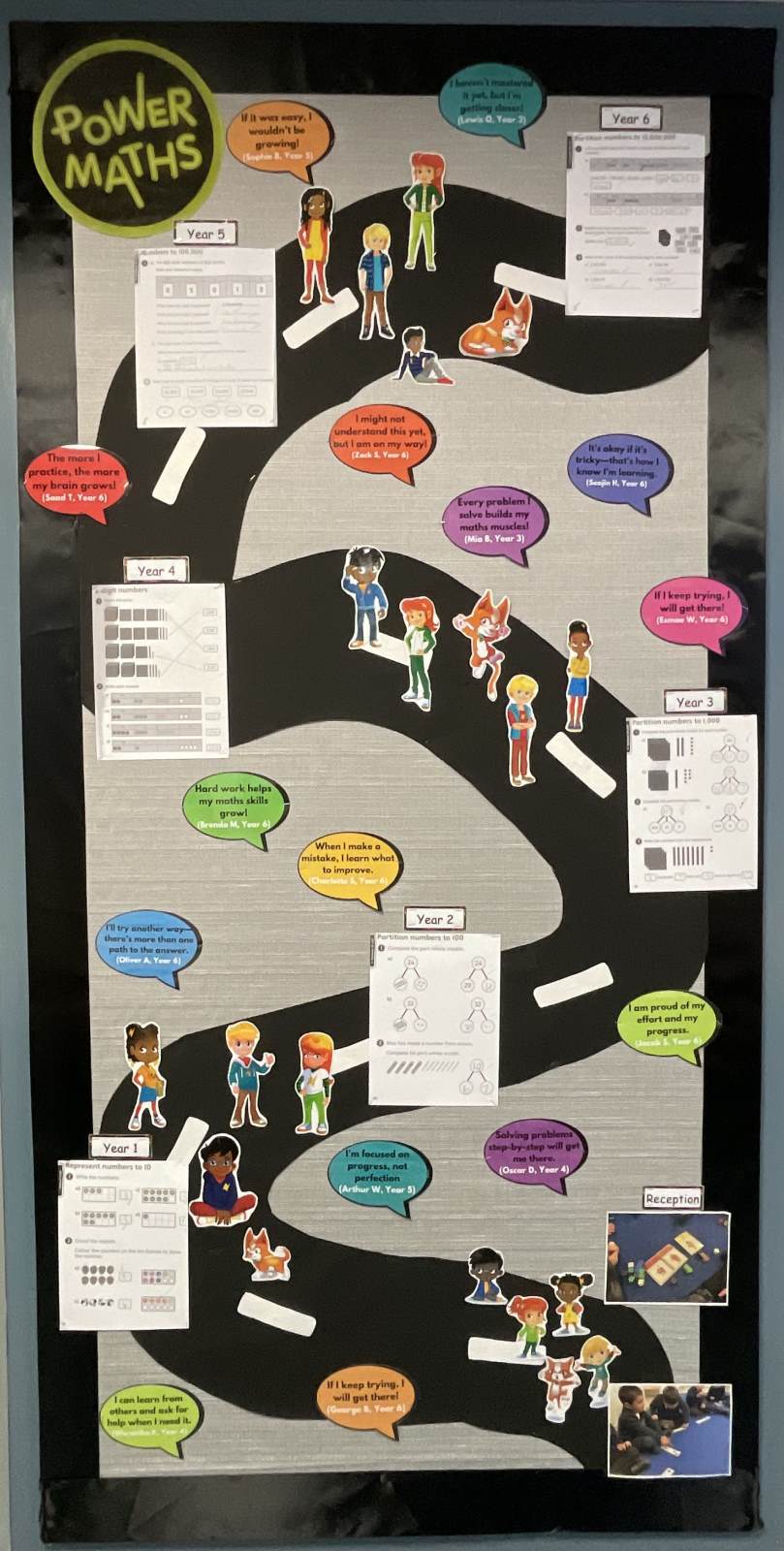
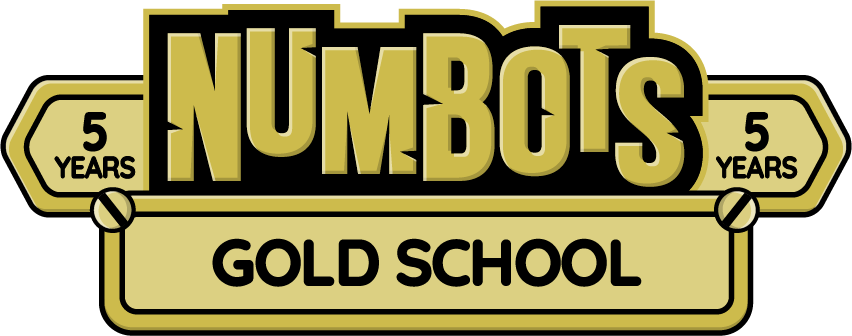
Maths Ambassadors
Our maths ambassadors share a passion for maths and work hard to promote the subject across school. They support the use of TTRS through regular certificates, run competitions, support our special maths days and support children in other classes.
-
Counting Help Guide
download_for_offline
download_for_offlineCounting Help Guide
- Growth mindset parent factsheet download_for_offline
download_for_offlineGrowth mindset parent factsheet
- KS1 calculation policy download_for_offline
download_for_offlineKS1 calculation policy
- LKS2 calculation policy download_for_offline
download_for_offlineLKS2 calculation policy
- Mastery guide for Parents download_for_offline
download_for_offlineMastery guide for Parents
- Mastery in Maths -parent bulletin download_for_offline
download_for_offlineMastery in Maths -parent bulletin
- Maths attitudes - parent guide download_for_offline
download_for_offlineMaths attitudes - parent guide
- Maths Intent Long Term Plan download_for_offline
download_for_offlineMaths Intent Long Term Plan
- Maths Mastery download_for_offline
download_for_offlineMaths Mastery
- Maths Study Guide download_for_offline
download_for_offlineMaths Study Guide
- MTC meeting 2025 download_for_offline
download_for_offlineMTC meeting 2025
- Multiplication tables check information for parents download_for_offline
download_for_offlineMultiplication tables check information for parents
- Numbots Parent Guide download_for_offline
download_for_offlineNumbots Parent Guide
- Power Maths for Parents download_for_offline
download_for_offlinePower Maths for Parents
- TTRS Game Modes download_for_offline
download_for_offlineTTRS Game Modes
- UKS2 calculation policy download_for_offline
download_for_offlineUKS2 calculation policy
Number Day 2025!
The whole school took part in Number Day to have fun with maths and raise money for the NSPCC. Thank you to everyone who took part - there were lots of fun activities and we raised £95.17 fort the NSPCC!
Maths Ambassadors

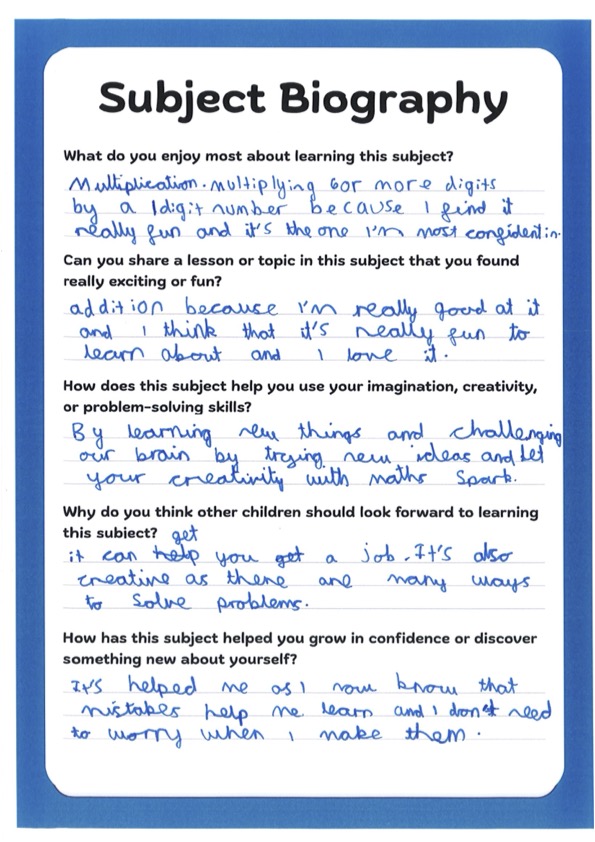
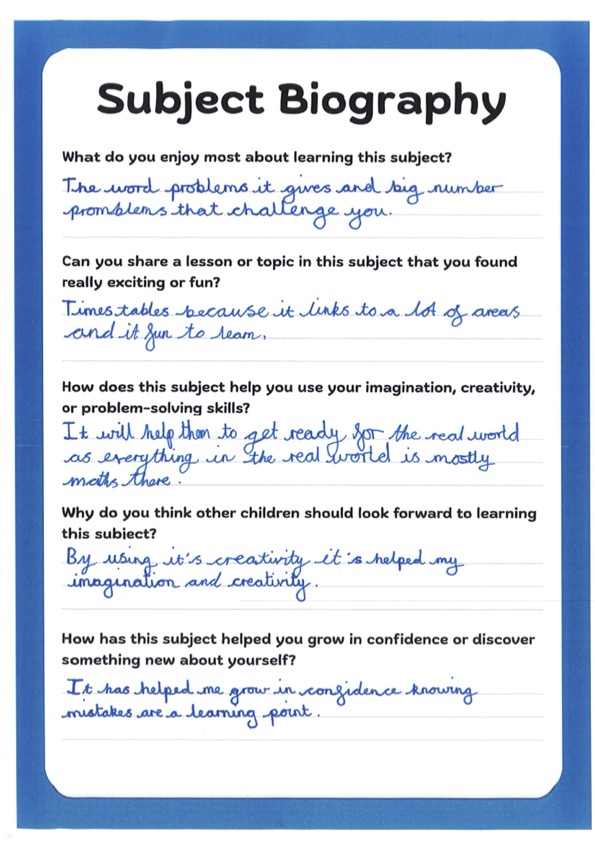
Number Day 2025!
Science
There are three main elements to DRET Primary Science Curriculum:-
- Knowledge and conceptual understanding. These are sequenced, and children must gain a secure understanding of each block of learning to support progression, and a depth of understanding, as they progress through their learning.
- Nature, process, and methods of science (working scientifically). This is not taught as a separate strand but instead is woven through every lesson. This enables children to develop their skills as a scientist by applying their knowledge and understanding.
- Critical thinking around big questions that are current and relevant to children in today's society. Children understand that applications of science often have ethical, social, economic and political implications and are provided with opportunities to reflect and debate these issues.
We believe that every child is a scientist; we challenge stereotypes and barriers. We also recognise the part we play in building Science Capital from an early age to support full engagement with science in education for throughout the learning journey. Across the curriculum, explicit links are made to other STEM subjects. Children are exposed regularly to the work of real-life scientists, from the past, and are given opportunities to engage with the work of scientists today. Children are also given opportunities to recognise that scientific explanations, theories and models are those that best fit the facts known at a particular time. Creating learning opportunities that develop a sense of excitement and curiosity is fundamental to support children's learning in science. Across the Primary Phase, carefully chosen stories are used to support and enhance children's knowledge and understanding and also to provide opportunities for discussion around real life.
Our year 6 science ambassador:
‘I like science because I think it is fun and interesting. I find electricity fascinating and experiments are fun. There is something for everyone as well. There is Chemistry (chemicals), physics (how the world works) and biology (the study of living things).’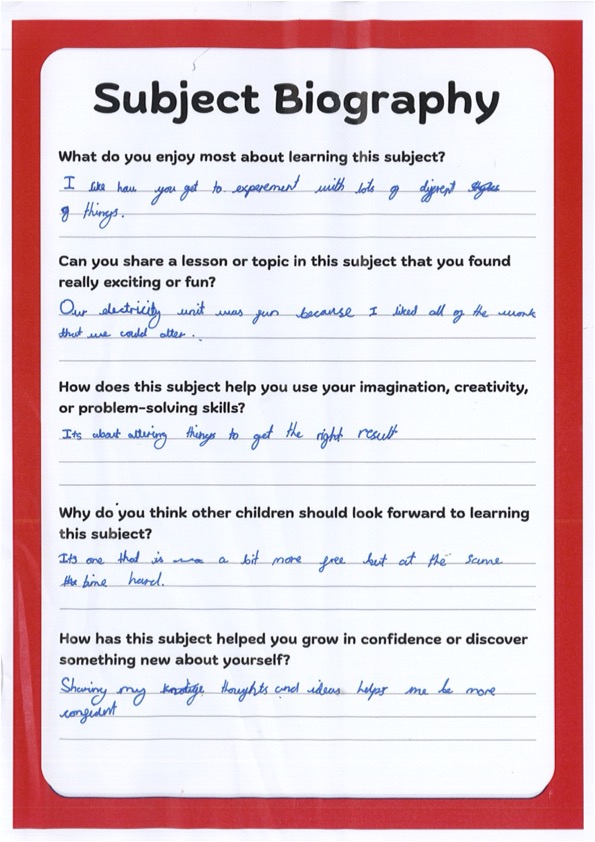

Useful Links:
https://wowscience.co.uk/
https://www.nhm.ac.uk/take-part/naturenauts.html
https://www.bbc.co.uk/cbeebies/topics/space
https://www.bbc.co.uk/bitesize/subjects/z6svr82
https://www.bbc.co.uk/bitesize/subjects/z2pfb9q
https://www.dkfindout.com/uk/dinosaurs-and-prehistoric-life/
https://www.shareitscience.com/p/saturday-science-experiment.htmlUseful Applications:
Play and Learn Science
Blue-Bot
A.L.E.X-
Science at Booth Wood Academy
download_for_offline
download_for_offlineScience at Booth Wood Academy
- Science LTP with TAPs download_for_offline
download_for_offlineScience LTP with TAPs
- Science Progression Map download_for_offline
download_for_offlineScience Progression Map
History
At Booth Wood Academy, we believe that an understanding of history and their position within British and world history, is vital for our children’s’ development. It is our goal that they should develop a sense of chronology and time and an understanding of how people lived in the past. They should also have an awareness of life in different societies or cultures and a knowledge of how beliefs and cultures influenced people’s actions.
We will teach them to have an understanding of cause and effect such as how events in history have changed our lives or affected the way in which we live as well as an understanding of how historical events and people have influenced our lives today. We will enhance their awareness of significant events and people in British and world history and expand their knowledge of local, national and international historical events. We will teach them the skills of enquiry, investigation, analysis, interpretation, evaluation and presentation.
-
Booth Wood History III
download_for_offline
download_for_offlineBooth Wood History III
- History Overview download_for_offline
download_for_offlineHistory Overview
Geography
So that pupils at Booth Wood Academy can become inquisitive geographers, our Geography Curriculum is sequenced coherently so useful knowledge builds through distinct strands; Locational Knowledge, Human and Physical Geography, Fieldwork, Map Skills and Compass Skills.
These strands are in constant interplay and are synthesised together within geography lessons. This geographical knowledge is presented by pupils through geographical enquiry, interpretation and communication. We have clear frameworks and a high-quality approach to learning which results in pupils’ accumulation of essential knowledge.
Throughout the school, pupils’ learning includes curiosity provoking ideas such as how the Earth’s features at different scales are shaped, interconnected and change over time. This understanding of the world in a physical sense, in combination with an awareness of societies, cultures and environmental issues around the world, enables pupils at Booth Wood to become true global citizens.
-
Geography - Intent Implementation and Impact
download_for_offline
download_for_offlineGeography - Intent Implementation and Impact
- Geography Study Guide download_for_offline
download_for_offlineGeography Study Guide
Computing
The use of computers and computer systems is an integral part of the National Curriculum and knowing how they work is a key life skill. In our world today, there exists a wealth of software, tools and technologies that can be used to communicate, collaborate, express ideas and create digital content.
At Booth Wood, we recognise that pupils are entitled to a broad and balanced computing education with a structured, progressive, approach to the learning of how computer systems work, the use of IT and the skills necessary to become digitally literate and participate fully in the modern world. Children at Booth Wood are very fortunate to have access to the latest technology and class teachers aim to use technology to enhance the learning across all lessons.
Intent
The school’s aims are to:
-
Provide a broad, balanced, challenging and enjoyable curriculum for all pupils.
-
Develop pupil’s computational thinking skills that will benefit them throughout their lives.
-
Meet the requirements of the national curriculum programmes of study for computing at Key Stage 1 and 2.
-
To respond to new developments in technology.
-
To equip pupils with the confidence and skills to use digital tools and technologies throughout their lives.
-
To enhance and enrich learning in other areas of the curriculum using IT and computing.
-
To develop the understanding of how to use computers and digital tools safely an responsibly.
The school believes that IT, computer science and digital literacy are essential life skills that are necessary to fully participate in the modern digital world. These skills allow children to become creators of digital content rather than simply consumers of it and provides access to a rich and varied source of information and content.
As well as this, it allows our pupils to communicate and present information in new ways; thereby further developing our pupils understanding. Furthermore, technology and computer science can motivate and enthuse pupils as it offers opportunities for communication and collaboration through group working both inside and outside of school and has the flexibility to meet the individual needs and abilities of each pupil.
Click here to watch a video about using Apple devices within our academy
-
Computing Intent
download_for_offline
download_for_offlineComputing Intent
Monthly Online Safety Guidance
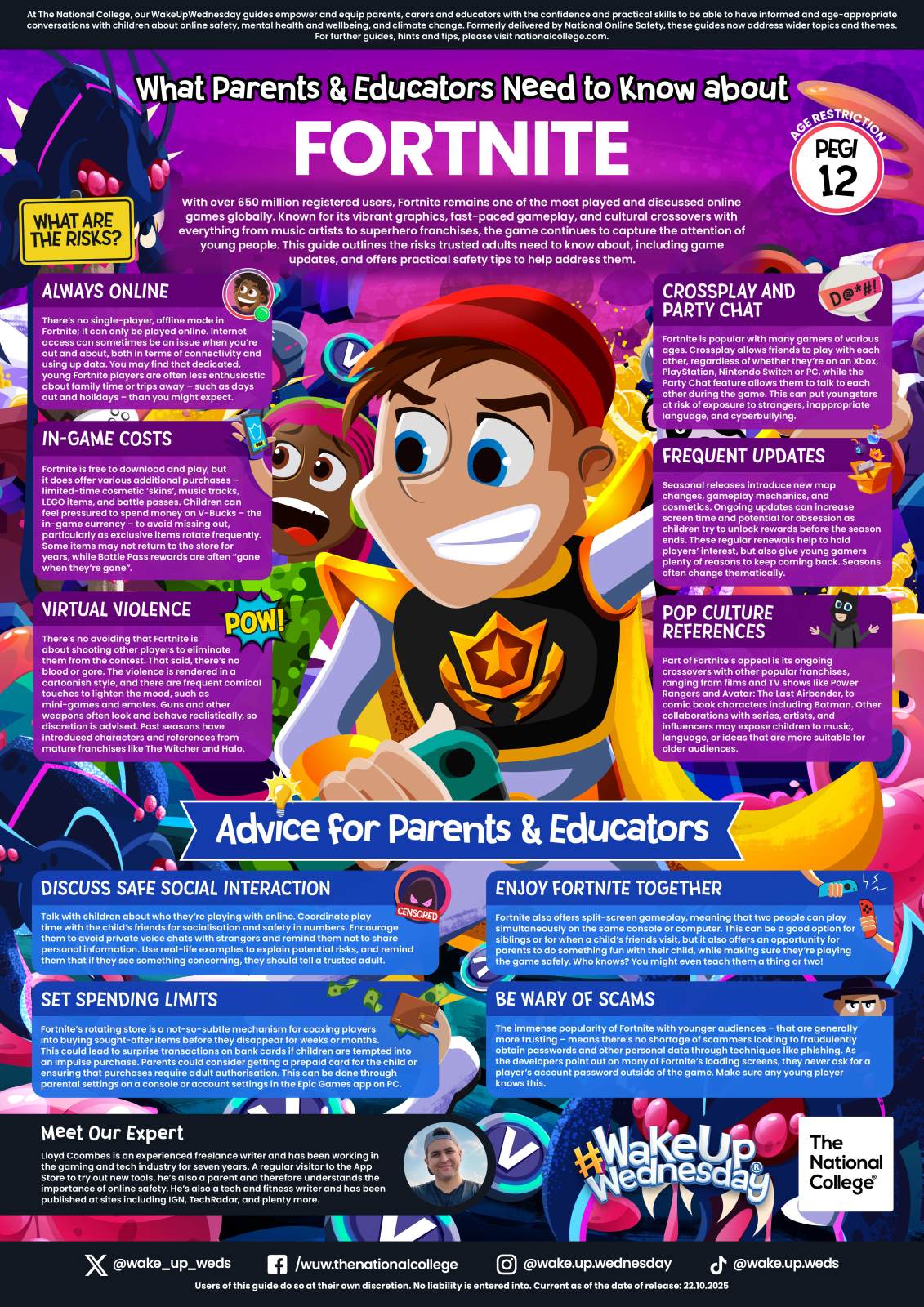
Parent Guides
Music
Music is used to calm and relax, to appreciate, to respect one another, to bring people together but most importantly to learn, enjoy and have fun with. Every day, every single child encounters music. Whether it’s singing a counting song in maths, listening to calming music whilst making art, singing as a whole school or learning how to play a musical instrument- music brings our school to life.
Music Ambassadors
Our music ambassadors share a passion for music and work hard to promote the subject across school.
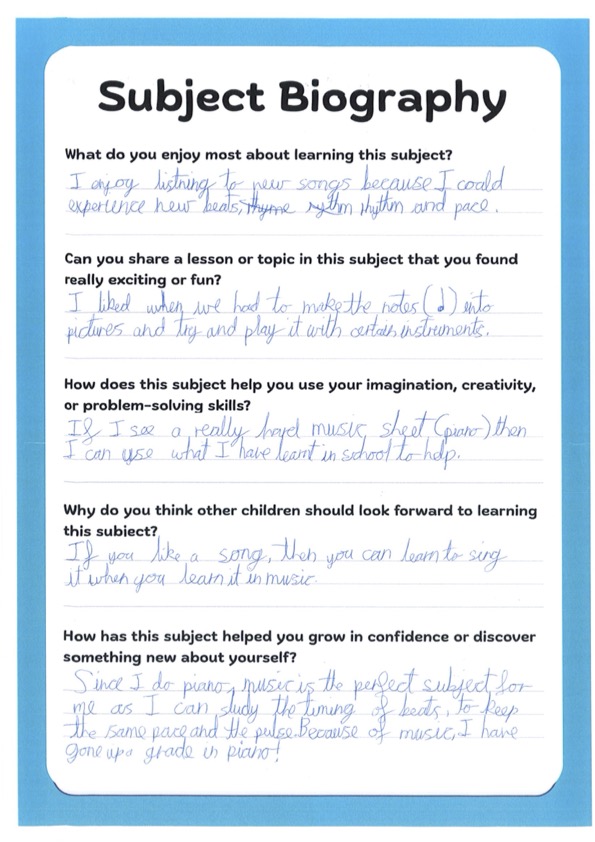

Rock Steady!
In-school rock and pop band lessons with Rocksteady!
We partner with Rocksteady Music School to deliver fun and inclusive rock and pop band lessons, right here at Booth Wood Academy! These weekly music lessons take place in school and are led by highly trained professional musicians who know how to inspire a love for music. It’s the perfect way for children to learn new musical skills, make friends and have fun, all whilst boosting confidence, wellbeing, social skills and academic achievement.
More about Rocksteady:
• There’s no experience necessary and all instruments for lessons are provided.
• Lessons are open for children from year 1 to year 6.
• Children learn up to 300 instrument, band, and performance skills, whilst playing songs they love.
• Children can achieve an Ofqual-regulated Music qualification, accredited by Trinity College London, without having to take a single exam.
• End of term concerts so you can see just how far they have come.
• Parents receive regular updates about their child’s progress, including photos and videos.
If your child would like to experience the magic of learning music, you can sign up to Rocksteady at: rocksteadymusicschool.com/parents
Find out more: 0330 113 0330 (Mon–Thurs 8am-8pm, Fri 8am-6pm, calls charged at local rate) info@rocksteadymusicschool.com
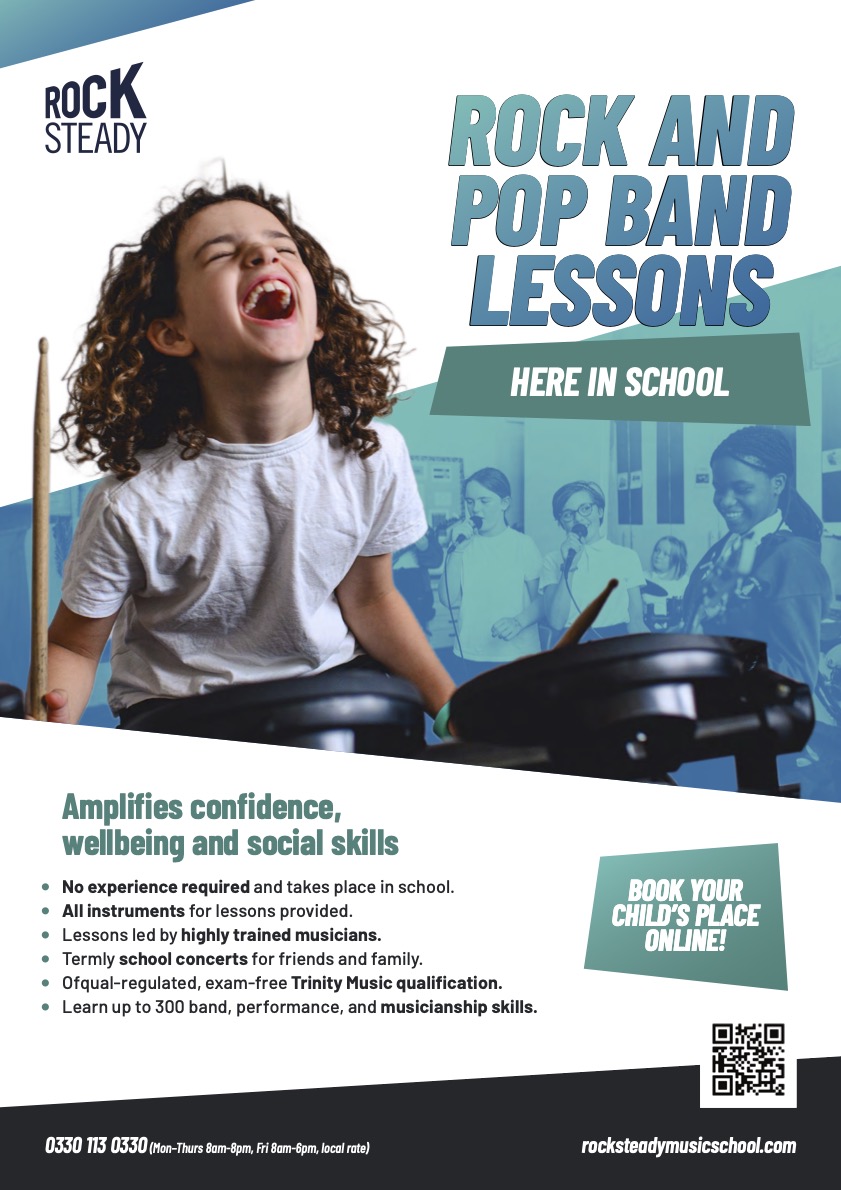
-
DRET Music Curriculum Overview review Sept 25
download_for_offline
download_for_offlineDRET Music Curriculum Overview review Sept 25
- DRET Music Progression Map download_for_offline
download_for_offlineDRET Music Progression Map
- EYFS LTP Expectations poster download_for_offline
download_for_offlineEYFS LTP Expectations poster
- KS1 LTP Expectations poster pptx download_for_offline
download_for_offlineKS1 LTP Expectations poster pptx
- KS2 Expectations posters download_for_offline
download_for_offlineKS2 Expectations posters
- Music Curriculum Overview 25-26 download_for_offline
download_for_offlineMusic Curriculum Overview 25-26
- Music Development Plan Summary 2025-26 download_for_offline
download_for_offlineMusic Development Plan Summary 2025-26
- Music Intent download_for_offline
download_for_offlineMusic Intent
Choir
Art, Design & Technology
At Booth Wood Academy all children will be entitled to experiences in Art and DT which will:
- Be Inspiring, enriching, varied and enjoyable.
- Challenge them to their full potential.
- Offer learning experiences of the highest standard possible, irrespective of gender ethnic background, age or disability.
- The art programme is designed to provide experiences which cover the full range of individual strengths and abilities through the widest possible range of activities.
Intent in Art, Design and Technology
At Booth Wood Academy we feel it is important for all children to have opportunities that are broad and balanced in Design and Technology. We value Design and Technology as it is an opportunity for children to express themselves. At Booth Wood we believe Art and Design should be creative, engaging and offer a challenge to all children. Throughout each year group there is opportunity to inspire children, this may be through physical Design, exploring Artists and questioning art forms. Giving children opportunity to ask questions in Design and Technology offers high-quality opportunities for children to learn to their fullest potential.
Aims of Art and Design from the National Curriculum
Produce creative work, exploring their ideas and recording their experiences
Become proficient in drawing, painting, sculpture and other art, craft and design techniques
Evaluate and analyse creative works using the language of art, craft and design
Know about great artists, craft makers and designers, and understand the historical and cultural development of their art forms.
Impact of Art and DT Curriculum
Having a broad and balanced curriculum in Art and Design is vital for progression in skills for all children. Teachers assess the children after each unit to ensure all children are challenged or supported throughout their Art and Design lessons. The impact of our curriculum is evident through lessons and children enjoy learning and participating in Art and Design. Children experience opportunities through Art and Design, which may not be accessible in the wider community.
Art Gallery with local artists
Booth Wood Academy held its very own art exhibition- National Portrait Gallery style! A company called Arts Images joined us for the day to exhibit every child in the schools imaginative art. Each classroom had a theme from space to Picasso portraits. The children thoroughly enjoyed spending time on their art and inviting parents and carers in to see what they have produced. A very worthwhile project that was enjoyed by all!
Cross curricular Art and DT
There are many geometrical links between mathematics and art. During maths lessons the children have been challenged to draw their own symmetrical patterns, 2D shapes, shape art and tessellating patterns.
During English lessons children have been designing their own newspapers, comic strips, posters and information leaflets. The skills learnt in art lessons have been invaluable.
Christmas Crafts
Over Christmas the school raises money by creating fun, imaginative pieces of Christmas Art to be sold at our Christmas fair. The money we raise from our Christmas fair goes straight back into school. Each class makes their own tree decorations, calendars or cards!
My Way Homework
Since introducing ‘My Way’ Homework, we have seen an incredibly increasing number of children’s self-esteem rise through their amazing creations. As we all know, homework is very important as it helps your child to go over and practice what they have learnt in school. It also helps to keep you informed of their progress and the current topics in the classroom. My Way Homework is our creative homework where your child can express their learning in any way they want to; they can paint, make something, write a story and make photo journals- create anything that inspires them!Cultural Capital
Here at Booth Wood we believe that skills learnt in Art and Design should be skills for life. Children will learn how to handle tools safely, design products and learn how cook and make a range of dishes.
Art & DT Ambassadors
Our Art & DT ambassadors share a passion for Art and Design & Technology to promote the subject across school.
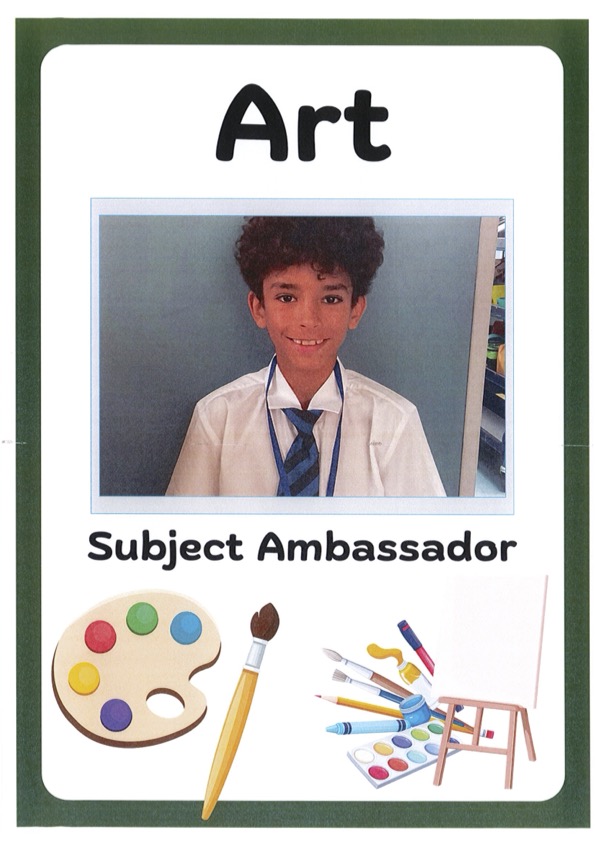
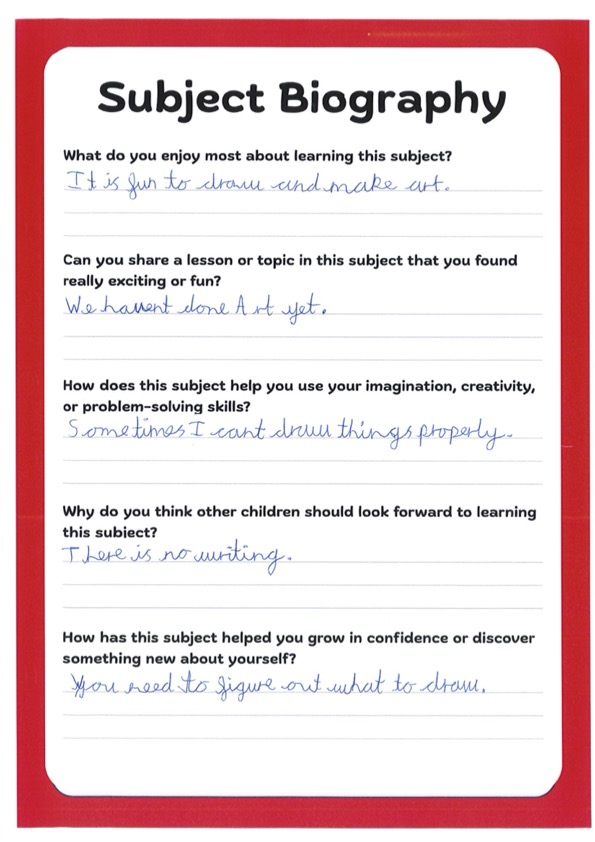
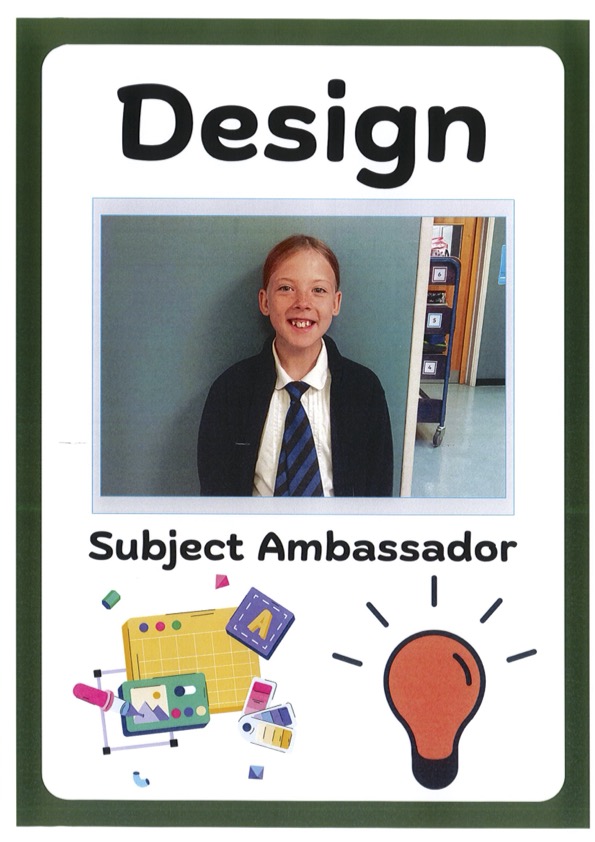
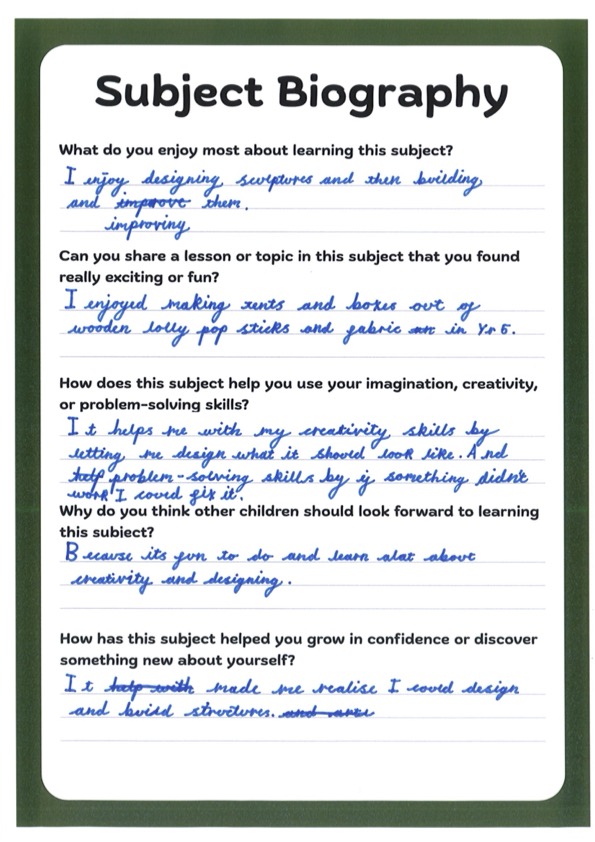
-
Art Study Guide
download_for_offline
download_for_offlineArt Study Guide
PSHE & RSE
At Booth Wood Academy, we use a whole school PSHE scheme called Jigsaw.
Jigsaw combines PSHE, emotional literacy, mindfulness, social skills and spiritual development.
Jigsaw is designed as a whole school approach, with all year groups working on the same theme (Puzzle) at the same time. This enables each Puzzle to start with an introductory assembly, generating a whole school focus for adults and children alike.
Jigsaw aims to help children know and value who they really are and how they relate to other people in this ever-changing world.
There are six Puzzles (half-term units of work) each with six Pieces (lessons). Every year group studies the same Puzzle at the same time (sequentially ordered from September to July), allowing for whole school themes and the end of Puzzle product, for example, a display or exhibition to be shared and celebrated by the whole school. Each year group is taught one lesson per week and all lessons are delivered in an age- and stage-appropriate way so that they meet children’s needs.
Jigsaw PSHE is fully compliant with the DfE Statutory Relationships & Health Education Guidance.
The different puzzle pieces are:
Autumn 1: Being me in my world
Autumn 2: Celebrating Difference
Spring 1: Dreams & Goals
Spring 2: Healthy Me
Summer 1: Relationships
Summer 2: Changing MeWhat is RSE?
RSE stands for Relationships and Sex Education.
As of 2020, relationships and sex education in primary schools is now a statuatory subject, alongside Health Education.
To prepare children for embracing the challenges of a happy and successful adult life, we need to give them the knowledge that helps them to make informed decisions about their wellbeing, health and relationships. All schools must have an up-to-date Relationships and Sex Education policy that is available for parents, carers and others to view.
PSHE Library
The PSHE book library is a selection of books that centre around PSHE themes. This can range from friendship to family changes, to keeping safe online - there are many topics that are covered.
These books may be used within PSHE lessons, story times and ELSA sessions. We are lucky to have access to such high quality texts.
At Booth Wood, we strive to ensure that all of our reading books include a variety of protagonists and characters, to ensure that there is representation of different ethnicities, cultures, abilities and families. These PSHE book lists includes titles that may prompt important conversations, allowing you to discuss differences and celebrate what makes people unique!
We also want to make these books available for families and grown-ups at home. We understand that some of these topics can be difficult to talk about, so a book can be a good starting point. You may want to use these book lists as inspiration for updating your child's bookshelves. Alternatively, you are welcome to email Mrs Armitage (PSHE lead) to organise borrowing some titles to enjoy at home.
The books are sorted into the following categories:
Box 1
-
Racial & Cultural Diversity
Box 2
-
Feelings, Emotions & Worries
-
Loss, Bereavement & Family Changes
Box 3
-
Disability & SEN Representation
-
LGBTQA+ Representation, Gender Identity & Stereotypes
Box 4
-
Resilience & Self-Belief
-
Celebrating Uniqueness
-
Friendship
Box 5
-
Our World & Environment
-
Technology
If you do wish to borrow any of our PSHE library books, please contact Mrs Armitage via WeDuc who can then arrange for the book(s) to be sent home with your child.
-
Booth Wood PSHE RSE Policy
download_for_offline
download_for_offlineBooth Wood PSHE RSE Policy
- Booth Wood PSHE Study Guide download_for_offline
download_for_offlineBooth Wood PSHE Study Guide
- Box 1 - Book List download_for_offline
download_for_offlineBox 1 - Book List
- Box 2 - Book List download_for_offline
download_for_offlineBox 2 - Book List
- Box 3 - Book List download_for_offline
download_for_offlineBox 3 - Book List
- Box 4 - Book List download_for_offline
download_for_offlineBox 4 - Book List
- Box 5 - Book List download_for_offline
download_for_offlineBox 5 - Book List
- Changing Me Year 1 download_for_offline
download_for_offlineChanging Me Year 1
- Changing Me Year 2 download_for_offline
download_for_offlineChanging Me Year 2
- Changing Me Year 3 download_for_offline
download_for_offlineChanging Me Year 3
- Changing Me Year 4 download_for_offline
download_for_offlineChanging Me Year 4
- Changing Me Year 5 download_for_offline
download_for_offlineChanging Me Year 5
- Changing Me Year 6 download_for_offline
download_for_offlineChanging Me Year 6
R.E
Religious Education plays a central role within the curriculum at Booth Wood Academy and is fundamental to our wider trust mission of creating aspirational and knowledge-rich pupils. At Booth Wood Academy we consistently promote children’s spiritual, moral, social and cultural development helping them to have a greater understanding of their place in the world, and their rights and responsibilities to other people.
The purpose of RE is to develop religious literacy and is taught as a distinct academic subject. The essential outcomes for RE are therefore related to the knowledge and understanding of religion and worldviews and are rooted in a multi-disciplinary understanding of the subject. This provides a balanced diet ensuring that pupils are seeing religion and worldviews through different lenses, and places RE within a strong, and well-established academic tradition.
At Booth Wood Primary Academy, we want to promote religious understanding and respect and to challenge prejudice, discrimination and stereotyping. We enable our pupils to appreciate their own and others’ beliefs and cultures, helping them to develop a clear understanding of the significance of religion in their own area as well in the world today.
We aim for our children to be able to hold a balanced and well-informed conversation about religion and belief which is underpinned by a deep respect for all. In order to fulfil this purpose, we provide a balance of theology, philosophy and human/social sciences within our RE lessons. As a result of the accumulation of essential knowledge, pupils’ cultural capital and religious understanding will be substantial and will provide a secure foundation that will enable them to succeed in the next stage of their education. We want them to know how religious education promotes tolerance and combats prejudice, producing positive citizens, preparing them for adult life, employment and life-long learning.
At Booth Wood Academy, the RE curriculum aims to ensure that all children are secure in three types of knowledge:
- first, ‘substantive’ knowledge: knowledge about various religious and non-religious traditions
- second, ‘ways of knowing’: pupils learn ‘how to know’ about religion and non-religion
- third, ‘personal knowledge’: pupils build an awareness of their own presuppositions and values about the religious and non-religious traditions they study
-
RE curriculum map
download_for_offline
download_for_offlineRE curriculum map
- RE Intent Document download_for_offline
download_for_offlineRE Intent Document
P.E
P.E.
-
Booth Wood After School Sports Clubs letter
download_for_offline
download_for_offlineBooth Wood After School Sports Clubs letter
- Booth Wood PE III download_for_offline
download_for_offlineBooth Wood PE III
- Booth Wood PE Policy download_for_offline
download_for_offlineBooth Wood PE Policy
- Booth Wood PE Progression of skills download_for_offline
download_for_offlineBooth Wood PE Progression of skills
- Booth Wood PE Timetable download_for_offline
download_for_offlineBooth Wood PE Timetable
French
At Booth Wood Academy we offer a carefully planned sequence of lessons, ensuring progressive coverage of the skills required by the national curriculum. Our chosen themes - Time Travelling, Let's Visit a French Town and This Is France - provide an introduction to the culture of French-speaking countries and communities. It aims to foster children’s curiosity and help deepen their understanding of the world. A linear curriculum has been chosen to allow opportunity for children to gradually build on their skills. Our lessons enable children to express their ideas and thoughts in French and provides opportunities to interact and communicate with others both in speech and in writing. At the heart of our school is the desire to expose children to authentic French, so our teaching offers regular opportunities to listen to native speakers.
In Lower KS2, children acquire basic skills and understanding of French with a strong emphasis placed on developing their Speaking and Listening skills. These will be embedded and further developed in Upper KS2 with experienced French teachers, alongside Reading and Writing, gradually progressing onto more complex language concepts and greater learner autonomy.
Through our teaching of French, we intend to inspire pupils to develop a love of languages and to expand their horizons to other countries, cultures and people. We aim to help children grow into curious, confident and reflective language learners and to provide them with a foundation that will equip them for further language studies.
-
Booth Wood French Study Guide
download_for_offline
download_for_offlineBooth Wood French Study Guide
British Values
In accordance with The Department for Education we aim to actively promote British values in schools to ensure young people leave school prepared for life in modern Britain. Pupils are encouraged to regard people of all faiths, races and cultures with respect and tolerance and understand that while different people may hold different views about what is "right" and "wrong", all people living in England are subject to its law.
The Key Values are:-
democracy
-
rule of law
-
tolerance of those of different faiths and beliefs
-
individual liberty
-
mutual respect
Curriculum Documents
-
Booth Wood Curriculum III
download_for_offline
download_for_offlineBooth Wood Curriculum III
- Booth Wood Curriculum Intent Statement download_for_offline
download_for_offlineBooth Wood Curriculum Intent Statement
- Booth Wood Curriculum Intent Statement download_for_offline
Latest News
- Booth Wood PE III download_for_offline
- RE Intent Document download_for_offline
- Booth Wood PSHE Study Guide download_for_offline
-
- DRET Music Progression Map download_for_offline
-
DRET Music Curriculum Overview review Sept 25
download_for_offline
- Geography Study Guide download_for_offline
- History Overview download_for_offline
- Science LTP with TAPs download_for_offline
- Growth mindset parent factsheet download_for_offline
- Progressional Books Reception download_for_offline
- Reception baseline assessment information for parents download_for_offline



